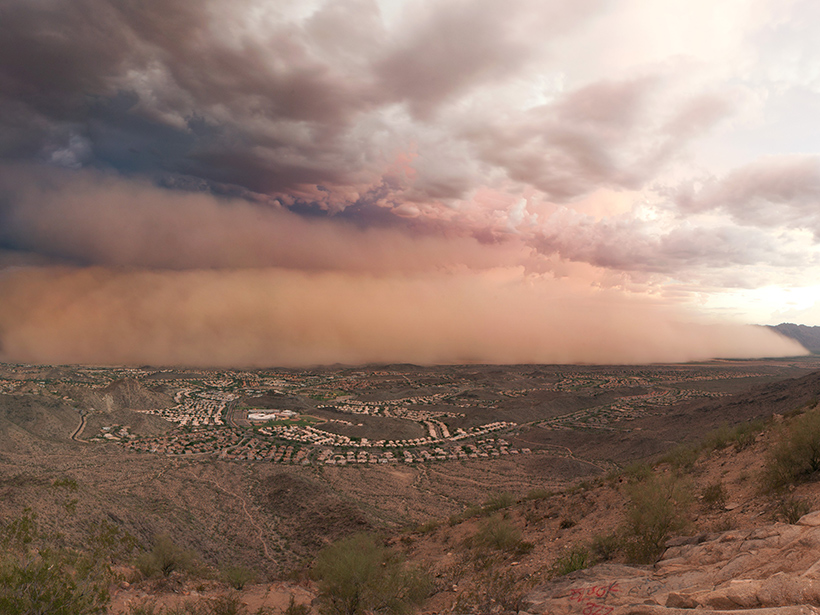The Scientific Paper Is Obsolete. Remember the early days of the Internet, when the online versions of magazines were just PDF reproductions of the paper pages? Publishing your research results as static words and pictures on a printed page is a bit like that. James Somers explores ways to bring publishing scientific research into the current millennium.
—Nancy McGuire, Contract Editor
Mauritius Must Brace for ‘Worst Case Scenario’ After Oil Spill, Says PM. Wow, “major ecological crisis” doesn’t begin to cover it. Mauritius is home to many endangered plant and animal species, and this spill occurred not far from the Île aux Aigrettes wildlife reserve and scientific research station. Cleanup crews race to minimize the ecological damage, something that would also be a big blow to Mauritius’s tourism economy. As more aid arrives, volunteers have been cutting off their hair to weave into nets that absorb the oil.
—Kimberly Cartier, Staff Writer
Dust Storms Associated with Increase in Critical Care Visits.

Unfortunately, the coronavirus is only one of many things that could affect respiratory health this year; for people living in the West and Southwest, intense dust storms may be something additional to consider. This post and the accompanying journal article break down the number of people being admitted to intensive care units as a result of dust storms and how increased temperatures are a factor.
—Anaise Aristide, Production and Analytics Specialist
Weird ‘Boomerang’ Earthquake Detected Under the Atlantic Ocean. How strange is this? Scientists have now discovered that some earthquakes ricochet back toward their origin point! I love that we can still uncover mysterious things about Earth that we never thought possible. A “boomerang” quake was first documented in the Atlantic Ocean in 2016, and scientists now wonder whether Japan’s magnitude 9.0 earthquake in 2011 also may have had a boomerang. This may be a rare phenomenon or something that went unnoticed by scientists who weren’t looking for it until now.
—Jenessa Duncombe, Staff Writer
Fragrances in an Ice Core Tell a Story of Human Activity. Scientists who analyzed an ice core from a mountain in Russia found that the concentrations of scent molecules trapped in the ice reflect the economic situation in the region, picking up after the end of World War II and indicating that more fragrance was used when the economy was strong and less during slowdowns. The article reminds me, as a climate scientist quoted in the article said, that “everything that we use in our daily lives…finds its way into the wider environment.”
—Faith Ishii, Production Manager
Linguists Hear an Accent Begin. Yes, this “60-Second Science” brief came out last year, but I just listened to it this week. It’s a great introduction to a facet of linguistics we can all relate to and explains why one of the world’s newest accents is developing among those who winter-over in Antarctica.
—Caryl-Sue, Managing Editor
Citation:
(2020), This week: Obsolete technology and brand-new discoveries, Eos, 101, https://doi.org/10.1029/2020EO148038. Published on 14 August 2020.
Text © 2020. AGU. CC BY-NC-ND 3.0
Except where otherwise noted, images are subject to copyright. Any reuse without express permission from the copyright owner is prohibited.

